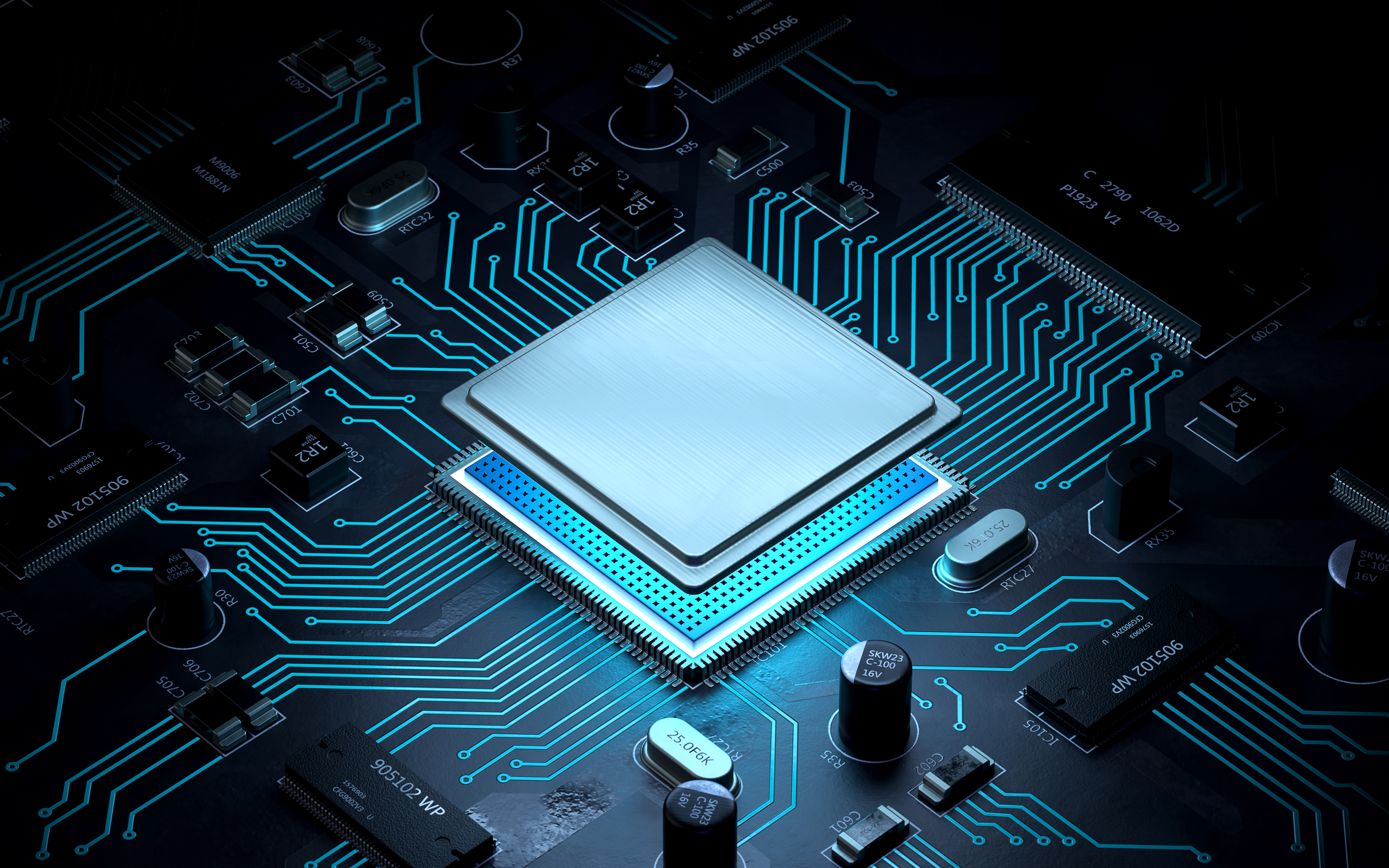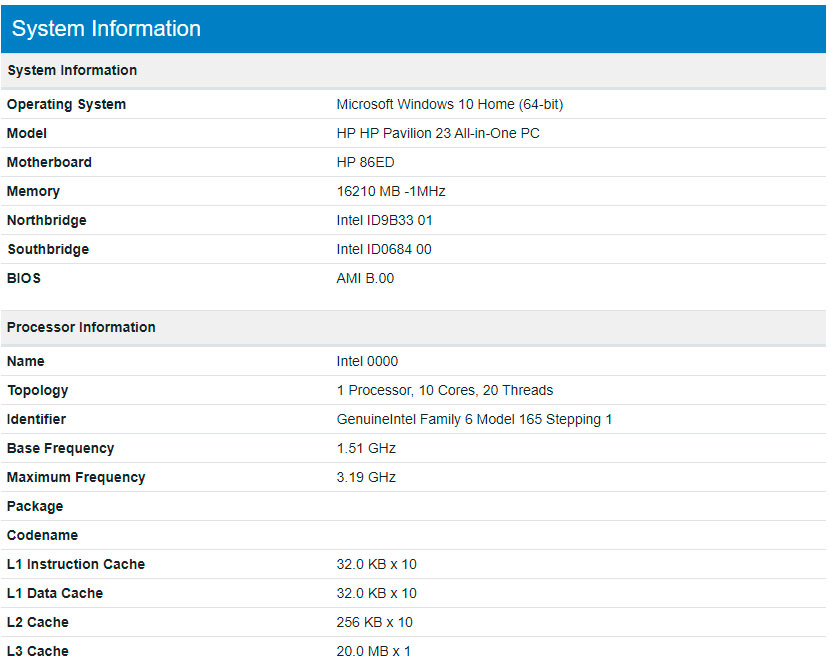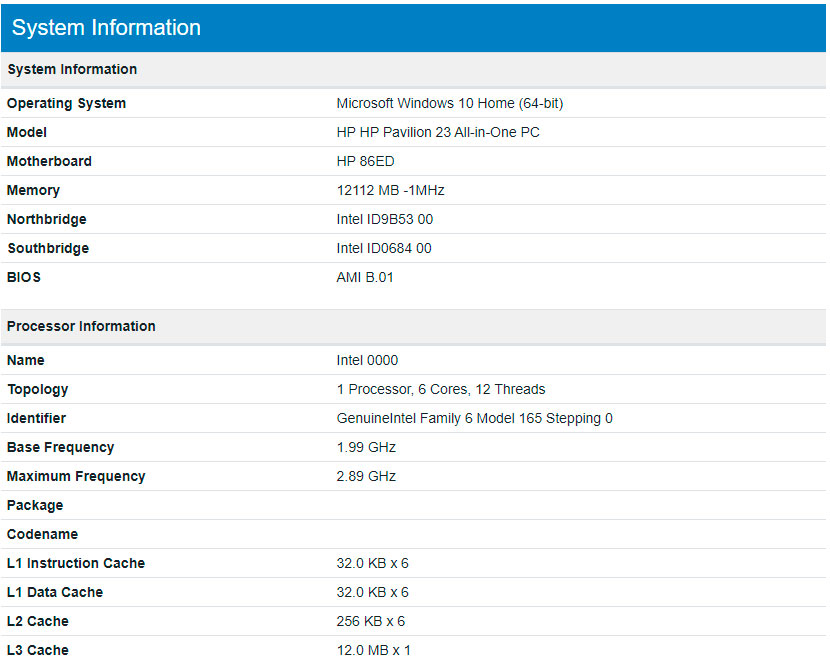Intel Comet Lake-S 10-Core CPU Benchmarks Surface

Fresh benchmarks for Intel's 10th-Generation Comet Lake-S (CML-S) processors have started to appeared in the Geekbench 4 database. The results reveal the chips' core counts, L2 and L3 cache, as well as the preliminary base and boost clocks. But as always, it's wise to take these with a some grains of salt, since they are submissions of unreleased hardware.
As a quick refresher, Comet Lake-S will replace Intel's current Coffee Lake Refresh lineup. The upcoming Comet Lake-S chips continue to hail from Intel's 14nm process node. However, they're likely to be based on an improved 14nm+++ process. Comet Lake-S is also expected to bring higher core counts and more cache.


Starting with what we assume is the flagship part, the unidentified Comet Lake-S processor will apparently come rocking 10 cores and 20 threads. It seemingly has 640KB of L1 cache, 2.5MB of L2 cache and 20MB of L3 cache. Geekbench 4 lists the processor with a 1.51 GHz base clock and 3.19 GHz boost clock.
The other unknown Comet Lake-S part is said to sport six cores and 12 threads, plus 384KB of L1 cache, 1.5MB of L2 cache and 12MB of L3 cache. Geekbench 4 identified the chip as having a 1.99 GHz base clock and 2.89 GHz boost clock.
According to Geekbench 4's report, both Comet Lake-S processors are equipped with Intel's UHD Graphics 630, which is the same iGPU (integrated graphics processing unit) that debuted with the chipmaker's Coffee Lake family. It's perplexing that Geekbench 4 only detects 23 EUs (execution units) for both Comet Lake-S parts when the UHD Graphics 630 is known to offer up to 24 EUs. When it comes to speeds, the 10-core chip's iGPU is clocked at 1.2 GHz, while the six-core is confined to 1.15 GHz.
AMD has already landed the first blow with its third-generation Ryzen desktop processors that maxes out at 16 cores with the AMD Ryzen 9 3950X. Obviously, Intel would be at a disadvantage core-wise if Comet Lake-S arrives topping out at just 10 cores, as rumored. So, It'll be interesting to see how Intel ends up responding.
Get Tom's Hardware's best news and in-depth reviews, straight to your inbox.

Zhiye Liu is a news editor, memory reviewer, and SSD tester at Tom’s Hardware. Although he loves everything that’s hardware, he has a soft spot for CPUs, GPUs, and RAM.